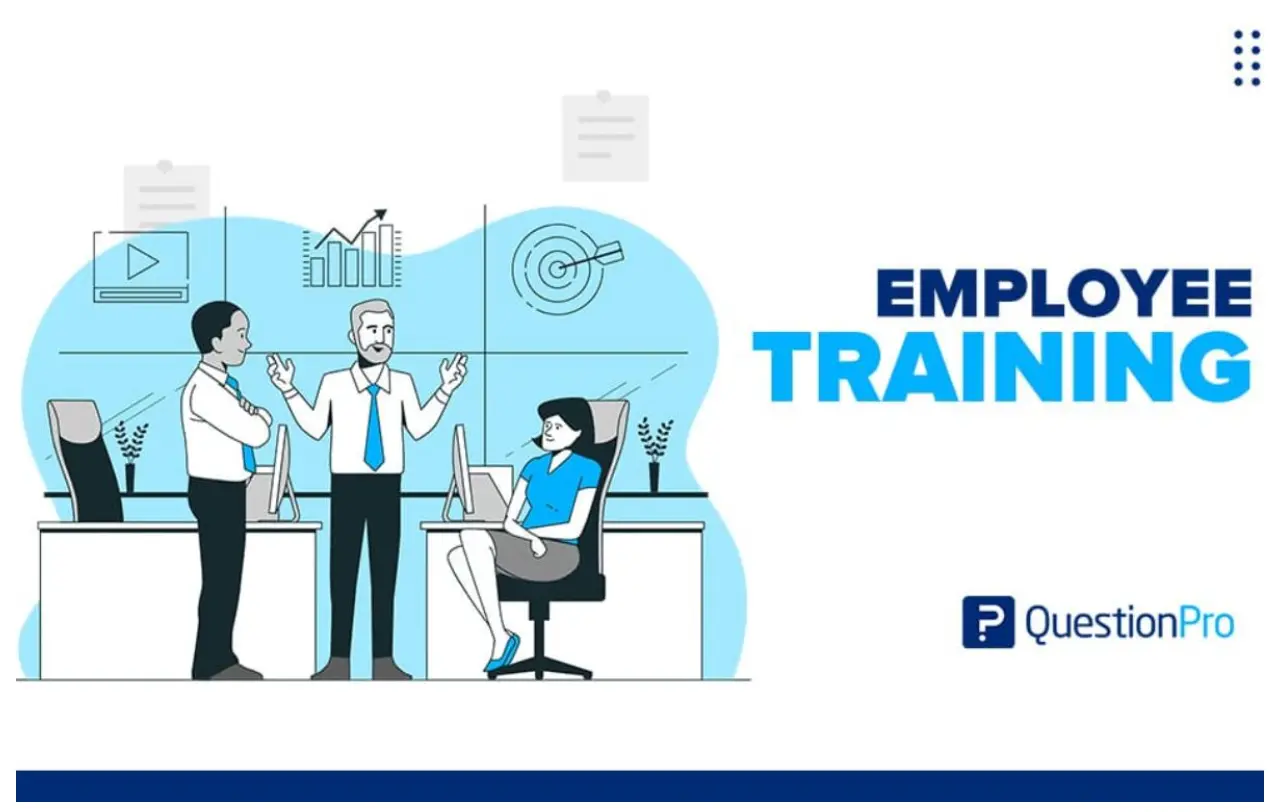Starting and running a successful SaaS startup with minimum resources can be challenging for any business owner.
Like there’s an app to count days on social media, we now have an artificial intelligence chatbot developed by OpenAI that can assist us with multiple tasks that can otherwise take up much time and effort.
One example is ChatGPT. It is a highly effective and powerful tool helping small and big businesses worldwide. It added over 100 million users in its first few days and only continues to grow.
If you are a business or tech enthusiast looking to start a SaaS (Software as a Service) company, consider using this latest AI breakthrough that has even caught the attention of SpaceX and Twitter owner Elon Musk.
Shortcuts:
- What is ChatGPT?
- Why SaaS Startups Need to Save Time and Money
- Benefits of Using ChatGPT - Top 12 List
- Are There Alternatives to ChatGPT?
- How SaaS Startups Are Using AI
- Steps to Run a Successful SaaS Startup
- Why Are SaaS Startups Becoming So Popular?
What is ChatGPT?
ChatGPT prompts are generated by OpenAI, utilizing advanced deep learning algorithms to produce responses that closely resemble human language in reaction to text-based inputs.
ChatGPT is based on the Transformer architecture and trains on massive text data from the internet.
ChatGPT is designed to understand natural language and generate relevant and informative responses to user queries.
It can carry on a conversation with a human user, responding to their inputs to simulate human-like interaction.
ChatGPT has been trained on various topics and can provide information on multiple subjects. It can also generate creative and engaging responses to open-ended prompts and questions, making it a versatile tool for various applications.
Some potential uses of ChatGPT include chatbots for customer service, automated content generation, language translation, even writing video commercials, and much more.
In the future, ChatGPT might be able to write movie scripts using the same structure as a traditional screenplay structure.
As a highly advanced language model, ChatGPT represents a significant advancement in natural language processing and has the potential to revolutionize how we interact with computers and machines.
ChatGPT can be a precious tool for SaaS startups that can help save time and improve customer satisfaction. Its applications range from using ChatGPT in recruitment processes to handling real-time customer support.
Why SaaS Startups Need to Save Time and Money
-
Faster time-to-market
In the highly competitive SaaS industry, startups need to be able to launch their products quickly to stay ahead of the competition. Saving time can help them get to market faster, giving them a significant advantage.
-
Limited resources
SaaS startups often need more resources, including funding, staff, and time. Saving money can help them stretch their resources further and invest in areas critical for growth.

-
Customer acquisition
Customer acquisition is a significant expense for SaaS startups, and saving money can help them acquire more customers without breaking the bank. It can help them grow their user base and revenue more quickly.
-
Scalability
SaaS startups need to be able to scale quickly to meet the needs of their growing customer base. Saving time and money can help them invest in the technology and infrastructure needed to support growth.
In summary, saving time and money is crucial for SaaS startups to achieve faster time-to-market, stretch their limited resources further, acquire more customers, and scale their businesses quickly.
Benefits of Using ChatGPT - Top 12 List
1. Automated customer support
With ChatGPT, SaaS startups can automate their customer support services by providing customers with a chatbot that can answer frequently asked questions and provide support 24/7. It helps save time for the startup by reducing the number of customer support queries that need to be handled by humans.
To ensure effective automation, it's essential to write the right prompts that guide the chatbot in delivering accurate and helpful responses to customers.
2. Personalized customer interaction
It helps SaaS startups to personalize customer interactions by understanding user queries and providing customized responses based on their needs. ChatGPT can also improve customer satisfaction and increase engagement with the startup.

3. Data analysis
SaaS startups can also use ChatGPT to analyze customer data and gain insights into customer behavior and preferences. It helps optimize its product or service offerings and improves customer retention.
4. Marketing and sales
It helps SaaS startups save time and resources by automating these processes. Various spreadsheet templates are available. You can download the ChatGPT browser extension. ChatGPT can automate marketing and sales processes, such as lead generation and qualification.
5. Onboarding
It can help new users navigate your product and learn its features, reducing the need for extensive onboarding and training.
6. Lead generation
ChatGPT can gather basic information from website visitors and qualify leads, saving your sales team time by providing them with qualified prospects.
7. Automated tasks
It can automate scheduling appointments, sending reminders, and processing payments, freeing up your team's time for higher-value activities.
8. Market research
ChatGPT can conduct market research and gather customer feedback to help inform product development and marketing strategies.
9. Content creation
It can generate primary content such as FAQs, knowledge base articles, and product descriptions, saving your team time on content creation.
Apart from ChatGPT, there are also other content creation tools available online. If your startup relies on database management, it's also smart to consider a Navicat Alternative like Beekeeper Studio—an open-source SQL editor built for performance and simplicity.
Read more about best SaaS tools.
10. Language translation
It can provide essential language translation automation services for customers and team members who speak different languages, eliminating the need for human translators.

11. Employee training
ChatGPT can assist in employee training by providing information on company policies, benefits, and procedures.
12. Project management
It can assist with project management tasks such as task assignments, progress tracking, and deadline reminders, helping to keep projects on track and saving time on administrative tasks.
In conclusion, ChatGPT is a powerful tool that can help SaaS businesses save time and increase efficiency in various ways.
By automating tasks, providing personalized interactions, and analyzing customer data, ChatGPT can help SaaS startups to optimize their operations and grow their business.
Are There Alternatives to ChatGPT?
Several other large language models exist as an alternative to ChatGPT.
An abbreviated list:
- GPT-4 (Generative Pre-trained Transformer 3) by OpenAI.
- BERT (Bidirectional Encoder Representations from Transformers) by Google.
- RoBERTa (Robustly Optimized BERT Approach) by Facebook.
- T5 (Text-to-Text Transfer Transformer) by Google.
- XLNet (eXtreme MultiLingual Language Model) by Carnegie Mellon University and Google.
Each model has its strengths and weaknesses, and the choice of which one to use depends on the specific use case and requirements.
How SaaS Startups are Using AI
-
Chatbots for customer support
SaaS startups are using AI-powered chatbots to automate customer support and provide instant assistance to customers.
-
Predictive analytics
SaaS startups use AI-powered predictive analytics to analyze customer data and gain insights into customer behavior, preferences, and needs.
-
Marketing automation
SaaS startups use AI to automate marketing tasks such as lead generation, email marketing, and social media advertising.
-
Personalization
SaaS startups are using AI to provide personalized customer experiences, such as personalized product recommendations and tailored content.
-
Natural language processing
SaaS startups use AI-powered natural language processing to understand and analyze customer interactions, such as chatbot conversations and customer feedback. AI can help SaaS startups streamline their operations, improve customer satisfaction, and stay competitive in the market.
Steps to Run a Successful SaaS Startup
Running a successful SaaS startup can be challenging, but you can take several key steps to increase your chances of success. Here are some tips for running a successful SaaS startup:
1. Identify a clear market need
Start by identifying a clear market need that your SaaS product can address. Conduct market research to understand your target audience and their pain points.
2. Develop a Minimum Viable Product (MVP)
Create a Minimum Viable Product (MVP) that addresses the identified market need. It’ll allow you to test your product in the market and get feedback from early users.
3. Focus on user experience
User experience is critical for the success of any SaaS product. Ensure your product is intuitive and easy to use and provides a positive user experience.
4. Build a strong team
Building a strong team is crucial for the success of any SaaS startup. Hire talented individuals with complementary skill sets and a passion for your product.
5. Develop a pricing strategy
Develop a competitive pricing strategy that aligns with your product's value. Consider offering a free trial or freemium model to attract new users.
6. Invest in marketing and sales
Invest in marketing and sales to increase visibility and attract new customers. Use social media, content marketing, and paid advertising to reach your target audience.
7. Monitor metrics
Monitor key metrics, such as customer acquisition cost, churn rate, and revenue growth, to track the success of your SaaS startup.
Use this data to make informed decisions and improve your product and marketing strategy over time.
Following these tips can increase your chances of running a successful SaaS startup. Remember to stay agile and be willing to pivot your strategy as needed based on customer feedback and market changes.
Why Are SaaS Startups Becoming So Popular?
SaaS startups are becoming popular due to their cost-effectiveness, scalability, accessibility, ease of use, and focus on innovation.
These factors make them an attractive option for small businesses and startups that want to stay ahead of the curve and grow their businesses efficiently.
-
Cost-effective
SaaS allows users to access the software through a subscription model, often more cost-effective than purchasing and maintaining software licenses in-house.
This software makes it an attractive option for small businesses and startups with limited resources.
-
Scalability
SaaS solutions can be easily scaled up or down based on user needs. This flexibility makes it an ideal solution for growing startups that need to adjust their software requirements as they expand.
-
Accessibility
SaaS solutions are typically cloud-based, meaning you can access them from anywhere with an internet connection. Accessibility makes it easier for remote teams to collaborate and work together.
-
Ease-of-use
SaaS solutions are user-friendly and easy to use, with minimal installation or maintenance. It’s an attractive option for non-technical users who may not have the expertise to manage software in-house.
-
Innovation
SaaS startups focus on innovation and creating new solutions to meet the needs of their customers, leading to the development of cutting-edge technology that can give them a competitive edge.
Final Takeaway
Be it SaaS or ecommerce business, finding out-of-the-way marketing strategies to enhance your small business is vital. It will save business costs without decreasing work quality.
Apart from using AI to save money and time, promoting your business online is another necessary method that will help boost your startup.
You can opt for video marketing which has now become one of the quickest ways for any business to gain traction. There are several video editing software for beginners that help create and edit quality videos for your brand.
Author Bio
Sarang Padhye is a blogger and content marketer. He loves online marketing, filmmaking, and advertising. He’s passionate about sharing his knowledge with visitors on his blog Miracalize Media.
Check out his Ultimate Guide on Writing TV Commercials.





